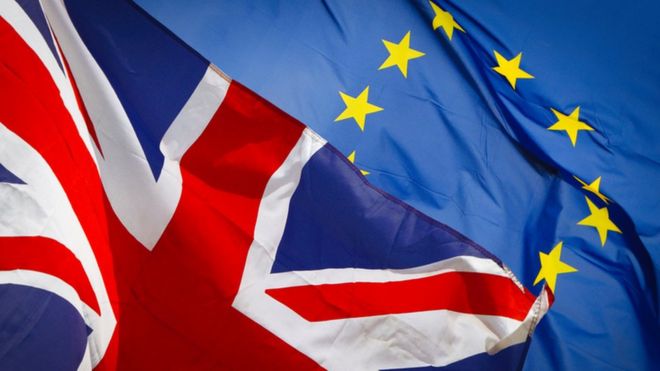24. Brexit matters to the Indian Economy
 |
| Source: https://www.bbc.com/news/uk-politics-32810887 |
Britain’s exit from the European Union is dominating the news all over the world. Scholars across disciplines are talking about the economic, political, social and cultural consequences of Brexit. The impact of Brexit on the world’s emerging markets, such as India, is an area that needs special attention.
As a former British Colony, India enjoys close economic, political and cultural ties with the United Kingdom. India also has a strong diplomatic and economic relationship with the European Union. This is especially true when we talk about the strategic importance of Indo-Pacific and India’s dominant role in it.
As an important trade partner, Brexit will have a direct impact on the Indian Economy. To give a brief background, India is among the top investors of the UK. There are a large number of Indian-owned companies in India – around 800 companies employing more than 100,000 people. This includes companies such as Tata Steel, Rolta, and Bharti Airtel. The UK is also the third-largest source of Foreign Direct Investment for India. Both the UK and the European Union forms over a quarter of the country’s IT exports. India also enjoys a trade surplus with the country. To sum it up, India invests in the UK more than the rest of Europe combined!
Earlier, Britain served as the gateway or entry point to the European Union. With Brexit, India will have to look for alternate entry points to the EU. Indian business may be adversely affected since the new government will take time to design and implement their new policies. According to research by NASSCOM, the sectors that will be most affected by the UK’s decision are Automobile, Pharmaceutical and IT.
The impact of the devaluation of the pound is also important in this regard. Sterling has lost more than 10% of its value against the dollar since Brexit. However, for India, this will mostly have a positive impact. The reduction in pound value will reduce the traveling cost to the UK and for this reason, travel to the country might see an upward trend. There can be an increase in labor mobility to the UK as the country would be looking for a steady source of labor after Brexit, and Indians with their English speaking abilities can benefit from this vacuum. However, immigration to the UK may be difficult as the country might resort to stringent immigration policies. With lower pound values, Indian firms may be able to invest in high technological assets. The real estate market is another area where the reduction in the pound value could benefit Indians.
As Britain isolates itself from the European Union, it will look for new partners to sustain itself in an emerging world order. Today, India is an attractive destination for foreign direct investments. With Brexit, trade with India will only increase. Talks of bilateral trade ties are already in motion. Opportunities are also ripe for free trade agreements between the two countries. Hence, it is time for India to take maximum advantage of the current political turmoil in the West.
As an important trade partner, Brexit will have a direct impact on the Indian Economy. To give a brief background, India is among the top investors of the UK. There are a large number of Indian-owned companies in India – around 800 companies employing more than 100,000 people. This includes companies such as Tata Steel, Rolta, and Bharti Airtel. The UK is also the third-largest source of Foreign Direct Investment for India. Both the UK and the European Union forms over a quarter of the country’s IT exports. India also enjoys a trade surplus with the country. To sum it up, India invests in the UK more than the rest of Europe combined!
Earlier, Britain served as the gateway or entry point to the European Union. With Brexit, India will have to look for alternate entry points to the EU. Indian business may be adversely affected since the new government will take time to design and implement their new policies. According to research by NASSCOM, the sectors that will be most affected by the UK’s decision are Automobile, Pharmaceutical and IT.
The impact of the devaluation of the pound is also important in this regard. Sterling has lost more than 10% of its value against the dollar since Brexit. However, for India, this will mostly have a positive impact. The reduction in pound value will reduce the traveling cost to the UK and for this reason, travel to the country might see an upward trend. There can be an increase in labor mobility to the UK as the country would be looking for a steady source of labor after Brexit, and Indians with their English speaking abilities can benefit from this vacuum. However, immigration to the UK may be difficult as the country might resort to stringent immigration policies. With lower pound values, Indian firms may be able to invest in high technological assets. The real estate market is another area where the reduction in the pound value could benefit Indians.
As Britain isolates itself from the European Union, it will look for new partners to sustain itself in an emerging world order. Today, India is an attractive destination for foreign direct investments. With Brexit, trade with India will only increase. Talks of bilateral trade ties are already in motion. Opportunities are also ripe for free trade agreements between the two countries. Hence, it is time for India to take maximum advantage of the current political turmoil in the West.
Comments
Post a Comment